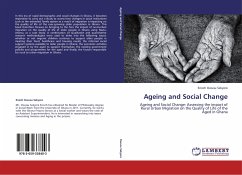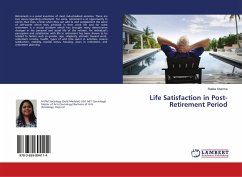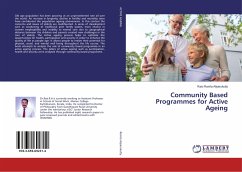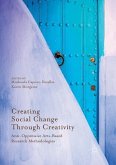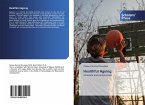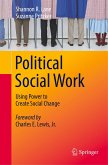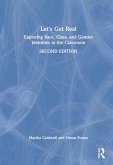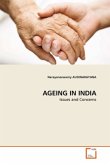In this era of rapid demographic and social changes in Ghana, it becomes imperative to carry out a study to access how changes in social institutions such as the extended family system as a result of migration is impacting on the quality of life of the ever-growing older population in Ghana. This book therefore focuses on bringing to the fore the impact of rural-urban migration on the quality of life of older people in Ghana using Nsuta-Atonsu as a case study. A combination of Qualitative and quantitative research methodologies were used to delve into the following issues: whether or not migrant children continue to support older people in meeting their food, healthcare and housing needs; the informal social support systems available to older people in Ghana; the economic activities engaged in by the aged to support themselves; the existing government policies and programmes for the aged and finally, the factors responsible for rural to urban migration in Ghana.
Bitte wählen Sie Ihr Anliegen aus.
Rechnungen
Retourenschein anfordern
Bestellstatus
Storno

